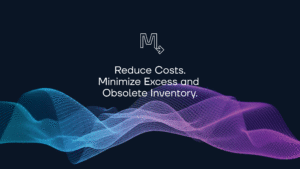Four (4) Key Corporate Resilience Principles Top Med Device Companies use to Grow Through Global Uncertainty.
Considering the litany of recent and ongoing local and global struggles ranging from medical and financial uncertainty to political unrest, a resilient supply chain has never been more critical.
Uncertain Times
The rollercoaster of events over recent years have impacted all industries, especially in the healthcare sector. Everyday heroes on the frontlines feel the brunt of it, but the downstream effects reach everyone. The med device industry has been particularly plagued by staffing shortages, raw materials scarcity, transportation disruption, energy insecurity, political uncertainty, and the delegation of many medical procedures as nonessential. But to to the patients we serve, their procedures are far from elective—some even life-saving.
Fortunately, top med device enterprise organizations have been employing solid resilience techniques since long before the pandemic, in this competitive and increasingly commoditized industry. These resilience strategies persist through contemporary crises, enabling growth and minimizing loss while navigating forecasted and unforeseen disruptions.
Resilience in Adverse Circumstances
Business psychologists at Robertson Cooper describe an effective personal workplace resilience model emphasizing Confidence, Adaptability, Purpose and Support. Top enterprise corporations demonstrate these same four personal resilience characteristics through four correlating corporate resilience strategies: Confidence through Acquisition, Adaptability through Innovation, Support through Transformation, and Purpose through Optimization.
Here’s how these business resilience strategies relate to personal resilience characteristics:
- Acquisition activities instill and project Confidence in offerings and capabilities, and help to manage competition in order to stay on top.
- Innovation enables Adaptability by preempting, preparing for, and responding to change in adverse situations.
- Transformation builds bridges to make, strengthen, and Support connections (especially leveraging technology).
- Optimization of assets and processes gives Purpose to data insights, and directs and automates the most impactful actions.
Corporate Resilience
Resilience is the fortitude and dynamic robustness to withstand and recover from adversity. But resilience takes more than just enduring tough periods. Resilience is built through all seasons, with consistent practices and thorough preparations that strengthen companies against downturns. For the enterprise med device industry, the momentum following these specific strategies sustains them through uncertainty. The four key corporate resilience principles are detailed here:
1. Acquisition
Organizations bolster the robustness of their offering through M&A activities, obviating the significant time and effort normally required to develop new products or business lines. Also—especially for mature industries like orthopedic implants—incremental improvements experience diminishing returns due to the increasing commoditization of the industry. Clinical data collection, R&D, regulatory red tape, liability, and market risk are avoided or mitigated through M&A.
The number of M&A deals in this sector is higher now than at any time in the last 10 years. Evolving medical needs and all-positive indicators for this type of growth demonstrate current opportunities for horizontal expansion in large med device companies.
Smaller start-ups or spin-off companies eager to distinguish themselves shoulder the risk of new product development. By investing in promising new products, med device companies promote a more resilient, comprehensive brand. There is also a snowball effect to this M&A economy as larger companies may be required to divest certain product lines providing cascading opportunities for M&A.
2. Innovation
Traditionally, innovation is focused around products and procedures: Sourcing superior materials, inventing higher performing products, and developing techniques with better outcomes–all aimed at ensuring a superior healthcare experience for both surgeons and patients.
However, with increased market saturation, shrinking margins, and an intensifying competitive environment, every step throughout the continuum of care presents an opportunity for innovation. Improvements in deliverability, service, and support technology have become critical to resilience.
Innovation requires an agile mindset. A recent study featured in the Harvard Business Review found that Internal Politics/Turf Wars/Lack of Alignment was the number one obstacle to innovation. It takes bold leadership to rise above the status quo, navigate internal politics, and align organizations behind innovation efforts.
Internal organizational unity strengthens reliability and fosters trust from surgeons and patients. Maintaining an innovative edge benefits not just the bottom line, but all parties linked in the supply chain, and the future of the industry as a whole. Innovation also anticipates the future needs of current markets, the potential needs of future markets, and the evolving needs of patients.
3. Transformation
Especially in the face of supply chain uncertainty, resilience includes leveraging technology through digital transformation, intelligent streamlining of logistics processes, and augmenting resources for field sales enablement.
Creating new med device products involves long, slow development cycles. Contrastingly, digital technology that coordinates inventory management (and field usage of those devices) can be much more agile and responsive.
But it’s not just migration and digitization of old, ineffective processes. In order to digitize and automate while actually improving processes, the approach must transcend the existing limited manual paradigm. It must be expert, specific, and deliberate. A modern, extant implementation does not just reinvent or replace, but integrates deeply with industry-specific tools.
In general, 70% of digital transformation projects fail. In the complex med device space, internal teams at enterprise corporations especially struggle when they are made to imitate a dedicated software development company. Projects almost always become obsolete before they’re delivered, and take much more time and resources to deliver a fraction of the initial scope (if delivered at all). Successful digital transformation is also highly dependent on field sales adoption (which is around 25% for the industry). The unique digital transformation obstacles this industry experiences are just too prohibitively difficult to solve for internal IT teams.
A dedicated, industry-specific transformation partner with extensive relevant experience can integrate into enterprise medical device manufacturers’ inventory systems, automate supply chain processes, and deliver unmatched user adoption. This support ensures med device companies can grow to scale by leveraging expert advanced digital technology.
4. Optimization
This is where the magic happens. Leveraging meaningful data, cutting edge technology and informed processes to ensure each piece of inventory gets the most use out of it means more than merely reducing waste and scaling growth.
Once the foundation of successful digital transformation is implemented, accurate visibility and actionable data insights inform the most effective optimization strategy.
Leaner operational readiness, automated fulfillment, and streamlined supply chain logistics can then enable metrics-based planning, optimized utilization and forecast-based deliverability. Optimizations in sales behavior and operations capabilities keep the company resilient in the face of planned and unexpected adversity.
With the right data applied correctly, you enable the measurement of important case life-cycle metrics such as cycle time, clean requests, and OTIF metrics, which in turn become powerful levers that can transform your business.
Making it Work for You (Successful Implementation)
Utilizing any combination of the four resilience strategies discussed above requires a technology partner with demonstrated capabilities. Seamless execution of integrations, transitions, and change management involved with M&A events requires industry-specific expertise and experience. To accomplish meaningful Innovation, Transformation, and Optimization requires a partner that has been through it before and can guide you through every step. A partner that is deeply integrated with the operations of several major medical device manufacturers can leverage historical acquired insight, best practices and successfully implement demonstrated strategies to combat the adversity that recently and increasingly challenges supply chains across the world.
Strengthen Your Last Mile Supply Chain – Connect With Us
If an in-depth discussion on integration of M&A, or innovation, transformation and optimization of your business operations makes sense – contact us here: info@movemedical.com / call 877.469.3992 or watch this VIDEO (executive case study)



